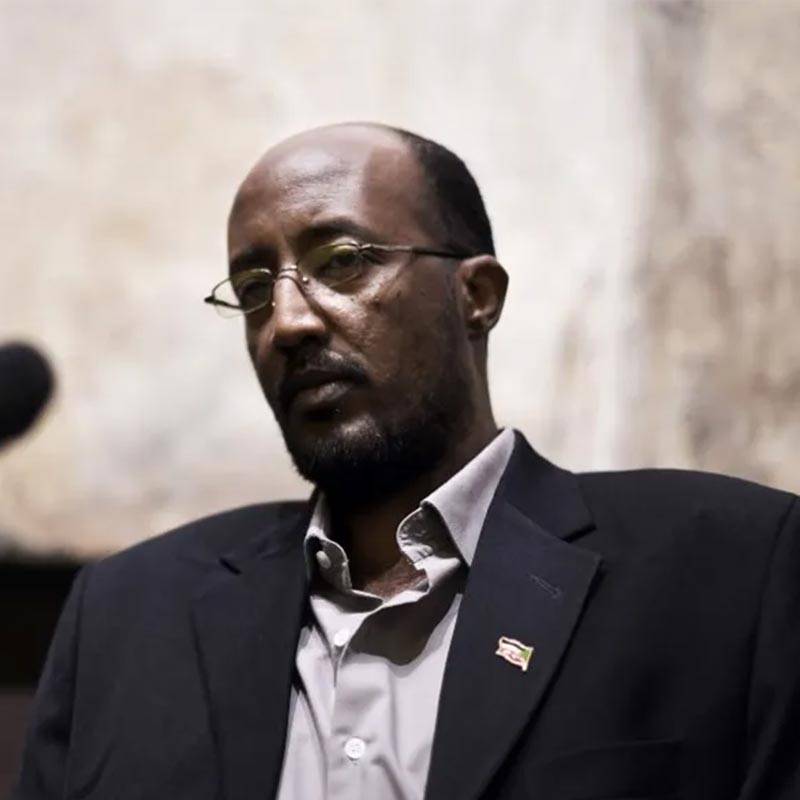There is talk of indirect, secret negotiations between the Sudanese army and the Rapid Support Forces (RSF) taking place now. Although no party has officially confirmed the resumption of talks, the suggestion is not an unlikely scenario, as many rounds of deliberations and secret negotiations have taken place between the warring parties since the beginning of the war on 15 April last year, some of which were not announced officially, despite the news being leaked to the media.
However, the question remains whether or not a political agreement can end the war in Sudan. After more than a year, the answer may no longer be as conclusive as it was in the early days and weeks of the fighting. The war is a direct result of a dispute between two powerful generals: the army commander and head of the Transitional Sovereignty Council, Lieutenant General Abdel Fattah Al-Burhan; and his deputy, the RSF’s Lieutenant General Mohamed Hamdan Dagalo (known as Hemedti). A power struggle between the two men began early and escalated despite them carrying out a military coup together against the transitional civilian government.
The leaders of the army and the RSF have united and separated more than once since their rise to power following the ousting of the regime of President Omar Al-Bashir in 2019. The now former Prime Minister Abdullah Hamdok, civilian political forces and the UN mission in Sudan sought to ease the tension between the two ambitious leaders, but all their efforts ended in failure.
Before reaching a full political agreement to hand over transitional authority to civilians, war broke out.
At the beginning, both sides’ descriptions of the war were direct and brief. The RSF believed that it was acting in self-defence, as its headquarters was attacked. It will fight until Al-Burhan is arrested and can be put on trial. This is what Hemedti promoted in the media more than once during the first days of the war.
The Sudanese army, meanwhile, described the war as a rebellion by the RSF that would be resolved within hours. In fact, more than one “military expert” has announced the end of the war on more than one occasion over the past year. This seemed logical based on the strength of the two warring parties, and the balance of power tilted in favour of the army.
However, their respective descriptions of what is happening have changed over the past 14 months. The RSF, for example, has sought to find legitimate justifications for its looting, destruction and killing carried out in many areas of Sudan. Spokespersons produced narratives about “fighting the remnants of Al-Bashir’s regime”; “the war against the Sudanese Islamic State terrorists”; “the destruction of the 1956 state [the date of Sudan’s independence]”; and “establishing a democratic state”. On the other hand, the Sudanese army developed its own narrative, from fighting forces affiliated with the army that rebelled against it to a war waged by the US, EU, the African Union, the UAE, Kenya, Chad and others against Sudan, seeking to colonise and subjugate it, in alliance with civilian political forces.
On the ground, though, we can see the new development of the war. It is a natural development caused by its prolongation, the continuous and increasing number of violations, and the frenzied war rhetoric.
The war has been internationalised with the army allied with Russia, after the normalisation of relations with Iran. Egypt was reported in 2022 to be “displeased” with Sudan for allowing Russia to open a military base in the country. The US has also asked the UAE to “stop interfering” in Sudan.
Moreover, it is no longer possible to control popular mobilisation and armed operations, especially with the growing threat of the RSF, which continues to storm cities, towns and villages. The state’s “monopoly on violence” is no longer possible on the ground, and citizens’ panic over RSF violations does not allow time and space for them to wait for peace when no one knows when it will arrive.
In a situation similar to Ancient Greek tragedies, Sudanese communities face the challenges of arming themselves for self-defence, or surrendering to the RSF’s crimes, which seem to have no end. With the option of defending themselves and their land, dangerous disparities appear in the fabric of Sudanese society. Tribal and regional tension is increasing, and videos of threats directed at citizens of different regions are spreading on social media.
Sudan’s war over the past year has slipped out of the hands of its military leaders, and what was possible in May 2023 will no longer be easy in May 2024, and definitely won’t be on the table in May 2025. What could have been decided by a meeting between Al-Burhan and Hemedti, now requires the consensus of many capitals. If this consensus occurs, there will still be many armed entities in Sudan that may not accept it. Hence, any talk about an agreement to end the war in Sudan needs to be very specific about which parties such an agreement will be between.

![Demonstrators take part in a protest march to draw attention to the civil war in Sudan as the conflict between Sudan’s army and a paramilitary group has been ongoing for over a year in London, United Kingdom on May 11, 2024 [Wiktor Szymanowicz/Anadolu Agency]](https://i0.wp.com/www.middleeastmonitor.com/wp-content/uploads/2024/05/AA-20240511-34533974-34533966-MARCH_FOR_SUDAN_IN_LONDON.jpg?fit=1200%2C800&ssl=1)





